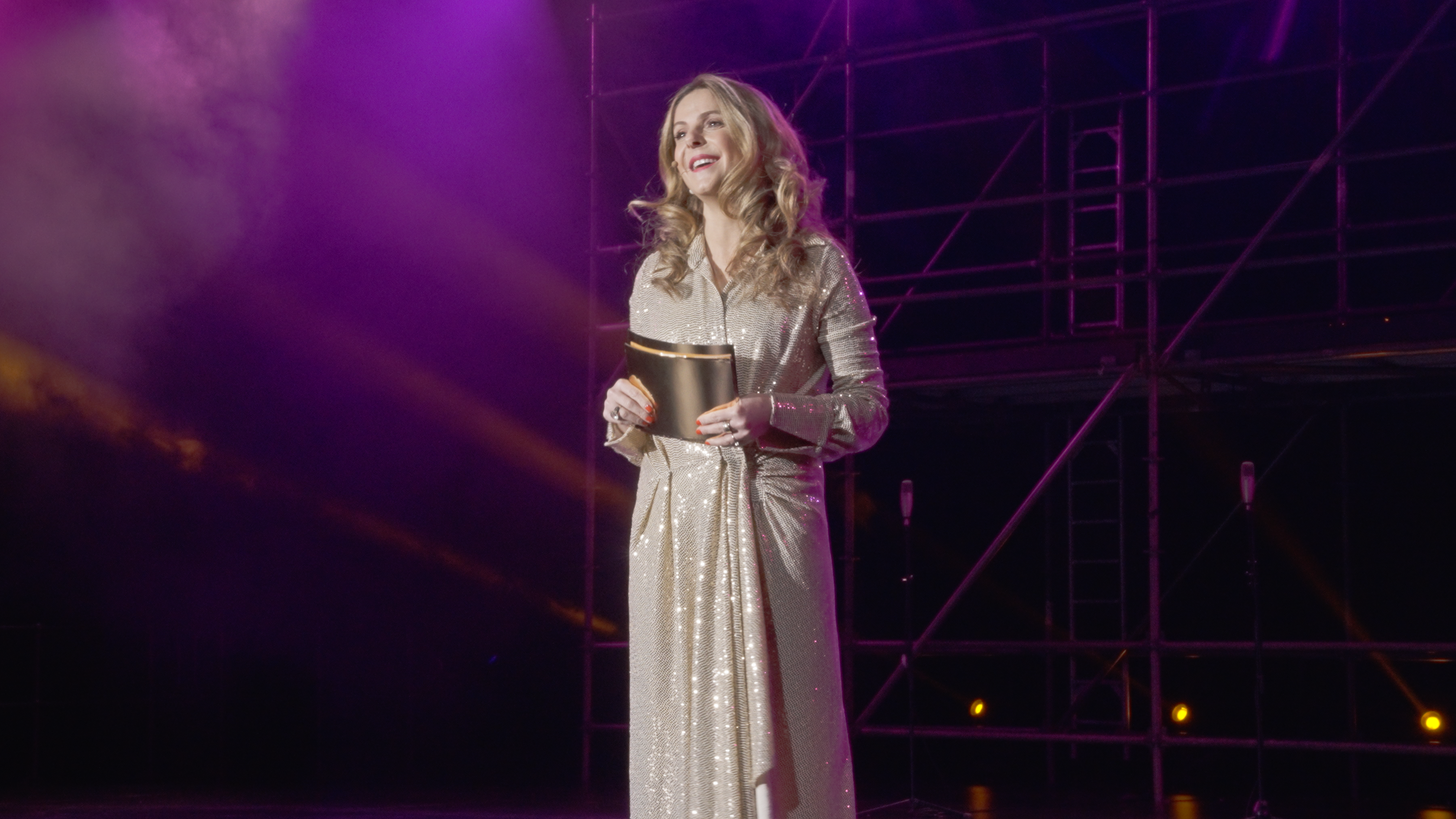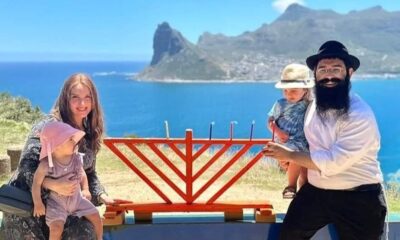
Community

Chabad flips switch to individual miracle drivers
“It’s up to you.” These words of the Rebbe were the overriding message of this year’s rebranded Chabad Miracle Drive dinner, billed Miracledrivers ’23. The event not only rebranded the movement, but shifted its focus to you and me, the people who make miracles happen.
Speaking of the spiritual energy that inspires people to increase small acts of goodness and kindness, Rabbi David Masinter, the founder and director of Miracle Drive, asked the dinner’s attendees to become miracle drivers. “G-d is pushing each one of us to become the people that we can become, to change ourselves and to change the entire world with the atomic energy within us,” he said.
Keynote speaker Michal Oshman (48), the former global head of company culture at TikTok, the author of What Would You Do If You Weren’t Afraid?, and a mother of four, lives this message. She shared her journey with the audience.
Born in Israel to a secular Jewish family and raised by her parents and grandparents who were all Holocaust survivors, Oshman was deeply influenced by her grandmother, Chana, who jumped off the train on the way to Auschwitz. Shot at and injured, she hid in a pig barn and ultimately lost her parents and siblings – only one brother survived. “She survived, made it to Israel, and built a new family, but she was hugely traumatised from the Holocaust,” said Oshman.
Oshman’s earliest childhood memory is hearing her grandmother screaming in Yiddish, begging for her beloved Michal not to be taken away. Oshman also recalls helping her grandmother hide tuna cans in preparation for the next horrible thing that would happen.
“From the outside, things looked beautiful in Tel Aviv in the mid-70s – it was a growing Israel,” Oshman said. “But inside, I became a sad, anxious young girl. Yet, I didn’t tell anyone. I wanted to be perfect, to be worth their survival, to please everyone.”
Having a father who was head forensic pathologist during a difficult time of terror attacks and intifada in Israel, Oshman also saw difficult things from a young age. She never slept more than three hours a night, constantly checking that her parents were breathing.
“I felt like their lives were on my shoulders,” she said. Yet she persevered, excelling at school, and eventually serving as an officer in the Israel Defense Forces for three years. “I did my best to fill a meaningful role there, but inside I was so scared. Every single day felt like the last day, and every single moment felt like the last moment.”
Through years of therapy, Oshman learned how to be more self-aware and to communicate, specifically about feelings. Yet, when she married her husband, Yair, and had children, she went from being an anxious daughter to an anxious mother who was afraid of everything. “I did my best. I had three university degrees and this lovely career. But the inside world I was experiencing couldn’t have been more different to how my life looked from the outside, and I was so ashamed.”
Psychotherapy and medication weren’t the answer. She knew she needed something else. And then, at the age of 38, through social media, she found Chassidut.
“I discovered Jewish wisdom,” she said. “I explored all the ‘isms’ I could when I was searching for meaning, like Taoism and Buddhism, but the only wisdom that I had no interest or access to was actually my own ‘ism’ – Judaism.” Finding herself in a shiur on the Tanya, an early text sharing Chassidic philosophy, Oshman began to delve deeper.
Oshman’s first discovery was that every person has a unique, G-dly soul. “Even if life hasn’t evolved exactly the way you wanted it to, it never touches your soul,” she said. “Your soul is as pure, it has the same potential, the same beauty that it had from the very beginning.”
Then, Oshman learned that we’re here for a reason. “The world was created for you,” she said. “So, what are you going to do about it?” Realising that she had become self-obsessed, Oshman knew it was time to change. “I was spending so much time and energy on myself that I dedicated very little energy and thought to what I could do for the world.” It wasn’t about needing to save the entire world, she said, rather doing small but meaningful things for those who live in it.
Oshman said that time is holy, and each moment is an opportunity to do something meaningful, whether it be by supporting others in times of need or adjusting one’s behaviour. “Feeding the ego is the quickest way to starving the soul. When I focus on others, when I think not just about myself, it helps me heal.”
Fear is a normal part of life that we need to acknowledge, she said, yet it needs to be replaced with purpose. “The more we look inside and connect to ourselves, the more we’re kind to ourselves and others, the better that chance that we can grow and overcome our fear. We have to choose to believe that while we’re afraid, we also have the strength and power it takes to overcome fear.”
Alluding the question G-d asks Adam in the Bible when he first speaks to him – “Ayekah?” (Where are you?), Oshman said we need to ask ourselves constantly where we are in our lives. “Are you making the right decisions? Are you going on the right path? Are you fulfilling your potential? Are you behaving in a way that is aligned to your values? If not, how can you course correct?
“Once we feel clear and proud of who we are, our identity, our values, what we believe in, and what we want to do here, once we feel comfortable in our own spiritual and physical skin, then the world will welcome us more,” she said. This self-acceptance will allow us to do something meaningful.










